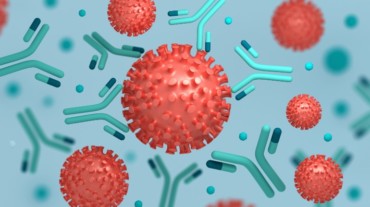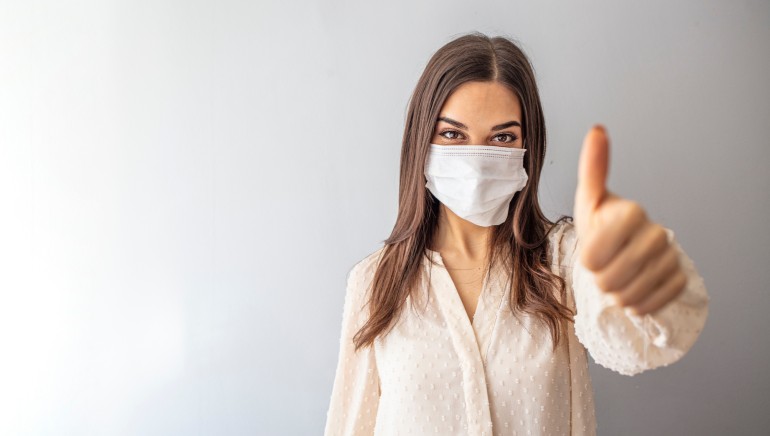
It’s been seven months now and the fight against coronavirus is still on. And while there are various treatments being tested in labs all over the world, we are all waiting with bated breath for anything can provide some respite from this unrelenting pandemic.
Recently a study found that covid patients who were given antibody therapy had fewer symptoms and were less likely to require hospitalisation or emergency medical care than those who did not receive the therapy.
For starters, this study is still under trial and its interim results were published in The New England Journal of Medicine. The study tested three different doses of LY-CoV555–a monoclonal antibody derived from the blood of a recovered covid-19 patient.
The analysis indicated a reduced viral load in outpatients with mild to moderate cases of covid-19 at the 2,800-milligram dosage level. The rate of hospitalisation and emergency medical care was also reduced rates at all dosage levels.
“For me, the most significant finding was the reduction in hospitalisations,” said the study’s co-first author, Peter Chen from the Cedars-Sinai Medical Center in the US.
Also, read: Touted as game-changing treatment in covid-19, hydroxychloroquine has life-threatening side effects
“Monoclonal antibodies like this have the potential to reduce the severity of covid-19 for many patients, allowing more people to recover at home,” Chen said.

According to the researchers, monoclonal antibodies work by attaching themselves to a virus and preventing it from replicating. They said LY-CoV555 binds to a particular protein on the novel coronavirus, called the spike protein, which the virus needs to enter human cells and replicate.
By preventing the virus from replicating, the researchers said the antibody slows down the replication process, allowing the patient’s own immune system time to kick into gear.
“What we’re doing is preventing the virus from causing too much damage early on in the process,” Chen said. “We’re buying the patients time so that their bodies can start developing their own immunity to fight the virus,” he further added.
Select Topics of your interest and let us customize your feed.
PERSONALISE NOWIn the study, the patients were given intravenous doses of either 700, 2,800 or 7,000 milligrams of the antibody, or a placebo. The researchers used a nasopharyngeal swab to test patients’ viral load before administering the antibody and again at several points after administering the drug.
“In this interim analysis of a phase 2 trial, one of three doses of neutralising antibody LY-CoV555 appeared to accelerate the natural decline in viral load over time, whereas the other doses had not by day 11,” the scientists wrote in the study.
They also gave the patients a questionnaire about their subsequent symptoms and treatment. According to the study, nearly 300 patients received the treatment, 100 patients per dosage level, and approximately 150 patients received the placebo.

Of the three dosage levels, the scientists said the 2,800-milligram dosage was shown to be effective in reducing viral load. By day 11, they said the viral load was substantially diminished for most patients, including those in the placebo arm.
Also, read: Horse plasma can be used to treat covid-19 infected patients, suggests an ICMR study
Ajay Nirula, another co-author of the study says, “The publication of these data in a peer-reviewed journal adds to the growing body of evidence for the potential utility for neutralising antibodies as therapeutics for people recently diagnosed with mild to moderate COVID-19, particularly high-risk patients.”
“These data show LY-CoV555 may be effective in treating COVID-19 by reducing the viral load, symptoms and the risk of hospitalisation in outpatients,” Nirula said.
At day 29, the study noted that hospitalisation rates were only 1.6 per cent in the antibody-treated group, compared with 6.3 per cent in the group that received the placebo.
The researchers said the reduction in hospitalisations was seen across all demographic groups, including those in high-risk categories — adults older than 65 and those with a high body mass index, greater than 35.
For high-risk patients, they said the hospitalisation rates were 4.2 per cent in patients treated with the antibody, compared with 14.6 per cent in placebo-treated patients.
The safety profile of patients treated with LY-CoV555 was similar to that of placebo-treated patients, the study noted. “We know that COVID-19 is especially hard on the elderly, the obese and people with certain pre-existing health conditions,” Chen said.
“Antibody treatments like this may have the most benefits for people in these higher-risk categories,” he concluded.